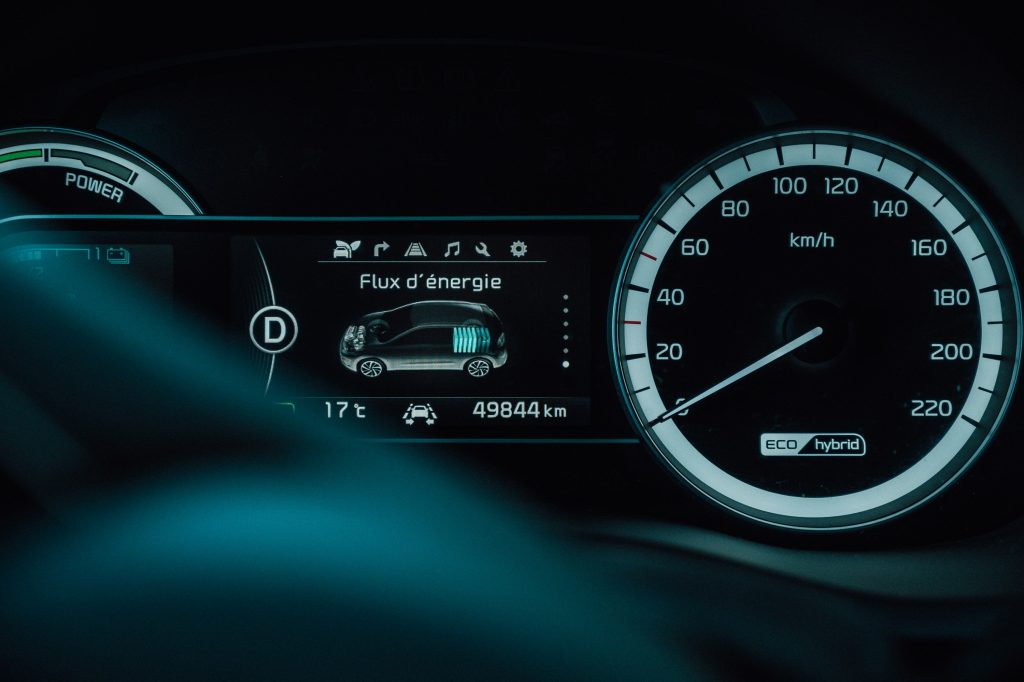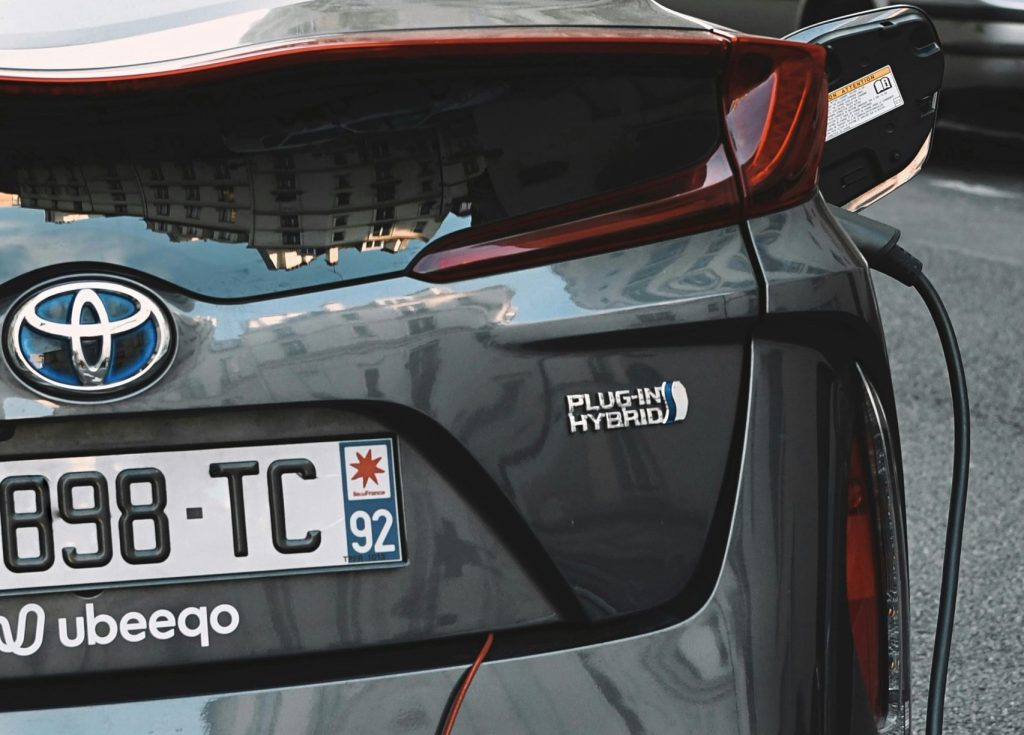Table of Contents
Assessing upfront costs and ongoing expenses is essential when determining if hybrid cars save you money. The electric motor in a hybrid is designed to work in tandem with a gasoline engine, reducing fuel consumption.
However, the cost benefits can vary widely depending on factors like driving habits, fuel prices, and model choice. A savings calculator can be a valuable tool to estimate potential savings personalized to an individual’s circumstances.

Understanding the Financial Implications of Hybrid Ownership
Owning a hybrid car involves considering several financial factors beyond the sticker price. While the monthly payment for a hybrid might be higher than that of a gas-powered vehicle, the total cost of ownership could be lower over time.
It’s crucial to factor in the savings on fuel and potential tax incentives that could offset the initial expense. Additionally, the resale value of hybrids often remains strong, contributing to their cost-effectiveness.
Initial Purchase Price Considerations
The upfront cost of hybrid vehicles often presents the first financial hurdle for buyers. Although hybrids typically carry a higher purchase price than traditional gas-powered vehicles, the long-term economic outlook can be more favorable.
Evaluating the return on investment involves considering fuel savings and other operational costs that could influence the total expense of the vehicle. When purchasing a hybrid, looking beyond the initial price tag is imperative.
Comparison With Traditional Gas-Powered Vehicles
Fuel savings often emerge as a primary advantage when comparing hybrids to their gas-powered counterparts. Consumer reports indicate that a hybrid will save money on gasoline over time, especially when gas prices are high.
These savings can substantially offset a hybrid’s higher purchase price than a conventional vehicle. Understanding the trade-offs between a higher monthly payment and reduced fuel costs is essential for prospective buyers.
The debate on whether a hybrid will save money over a traditional gas-powered vehicle is multifaceted. Apart from fuel savings, other factors like maintenance costs and insurance rates come into play.
Manufacturer and Model Variations
The variations between manufacturers and models are noteworthy when exploring the market for hybrids. Each brand offers a unique take on hybrid technology, which can influence the vehicle’s performance, fuel efficiency, and overall cost savings.
Consumers must research and compare different hybrids to find the one that best suits their budget and driving needs. The specific hybrid model chosen can greatly impact the potential for cost savings.
Long-Term Savings Through Fuel Efficiency
Fuel efficiency is a hallmark of hybrid vehicles, contributing to long-term savings that can make them a financially viable option. These savings are especially pronounced for drivers who clock a high number of miles annually or who face volatile fuel prices.
Integrating an electric motor in hybrids allows for less reliance on gasoline, leading to fewer fill-ups and more money retained in the owner’s pocket. This efficiency often tips the scales in favor of hybrids when consumers calculate the total cost of ownership.
Gas Savings Over the Life of the Vehicle
One of the most tangible benefits of driving a hybrid is the savings on gas over the vehicle’s lifetime. As gas prices fluctuate, hybrids’ ability to minimize fuel consumption becomes increasingly attractive.
The savings potential can be particularly appealing for those who drive frequently or over long distances, where the reduced fuel costs can accumulate quickly. With the ever-present uncertainty around gas prices, owning a hybrid can offer a buffer against the financial impact of fuel market volatility.
Impact of Hybrid Technology on Mileage
Hybrid technology’s impact on mileage is a key factor in the vehicle’s ability to save on fuel costs. The synergy between the electric motor and the gasoline engine allows hybrids to achieve higher miles per gallon than conventional vehicles.
This increase in fuel economy translates directly into cost savings for the driver, particularly in urban driving conditions where stop-and-go traffic is common. The efficiency of hybrid vehicles is further enhanced by regenerative braking, which captures energy typically lost during braking and uses it to recharge the battery.
Incentives That Lower Hybrid Car Costs
Financial incentives play a significant role in reducing the overall cost of hybrid vehicles. These can include tax rebates, credits, and other financial perks offered by governments and manufacturers to encourage the purchase of more environmentally friendly cars.
Such incentives can make hybrids comparably priced or cheaper than conventional counterparts, further tipping the scales in favor of hybrid ownership. The allure of owning a hybrid is bolstered by the prospect of incentives that lower the initial purchase price.
Governments and manufacturers often provide this financial encouragements to promote sustainable transportation. Combined with hybrids’ inherent fuel savings, these incentives can significantly reduce the economic barriers to hybrid ownership and make them a more financially attractive option.
Federal Tax Credits and Deductions
Federal tax credits and deductions are a compelling incentive for purchasing hybrid vehicles, particularly plug-in hybrids. These federal tax benefits can substantially lower the effective purchase price, making the upfront cost comparable to traditional cars.
Understanding the specific tax credits available and their eligibility requirements is crucial for buyers looking to maximize their savings. For consumers considering plug-in hybrids, the federal tax credits available can make a significant difference in the financial equation.
These credits, designed to encourage the adoption of cleaner vehicle technology, can provide substantial savings at tax time. Potential buyers need to be aware of these benefits as they consider the overall affordability of a plug-in hybrid vehicle.
State and Local Incentives for Hybrid Purchasers
In addition to federal tax credits, state and local incentives can further enhance the affordability of hybrid vehicles. These tax credits and other perks can vary widely by location, but they often include reductions in sales tax, registration fees, and grants for installing home charging equipment for plug-in hybrids.
Prospective buyers should investigate the incentives available in their area to understand the potential savings fully. For those considering plug-in hybrids, local incentives can be a deciding factor.
Many states offer tax credits, on top of federal tax incentives, to promote purchasing environmentally friendly vehicles. These local benefits can make plug-in hybrids an even more attractive investment, reducing the total cost of ownership and rewarding drivers for their eco-friendly choices.
Insurance Costs for Hybrid Vehicles
Insurance costs for hybrid vehicles can influence the overall savings potential. While some insurers offer discounts for hybrid cars, acknowledging their safety features and environmentally friendly design, other factors, such as repair costs and replacement part prices, might affect insurance rates.
Hybrid owners must shop around for the best insurance deals that consider the unique aspects of hybrid technology. Assessing the insurance premiums for hybrids requires a thorough understanding of how these vehicles are viewed within the auto industry.
The advanced technology in hybrid cars can lead to higher repair costs, potentially affecting insurance rates. However, many insurers recognize the lower risk profile of hybrid drivers, which can result in more favorable insurance terms.
Potential Discounts on Hybrid Car Insurance
Hybrid owners often have the opportunity to benefit from potential discounts on car insurance. Insurers may recognize the safety features and lower risk associated with hybrid technology, leading to savings on premiums.
The auto industry has observed that drivers of hybrid cars, such as the Toyota Prius, maybe more safety-conscious, resulting in lower insurance rates than conventional cars. Saving money on car insurance is an added advantage for those who purchase a hybrid.
With the industry’s shift towards recognizing the value of technology in promoting safer driving, insurers are increasingly providing discounts for hybrid vehicles. In conjunction with the fuel efficiency of models like the Tesla Model and Toyota Prius, these savings can further improve the cost-effectiveness of choosing a hybrid over non-hybrid models.
Insurance Premium Factors for Hybrids
Several factors influence the insurance premiums for hybrid vehicles. Insurers may consider the higher cost of repairing advanced hybrid technology, such as the electric motor and battery systems, which can drive up rates.
However, the typically lower risk of theft for hybrids and the demographic of hybrid owners—who may be deemed more responsible—can counterbalance these costs, potentially leading to lower insurance rates.
The calculation of insurance rates for hybrids also considers the vehicle’s safety record, gas mileage, and the potential for reduced wear on components like brake pads.
While some aspects of hybrid ownership, such as the higher cost of certain repairs, might increase insurance rates, hybrids’ overall safety and efficiency can lead to more competitive premiums than non-hybrid versions of the same model.

Ownership Experience and Cost Analysis
A hybrid car’s ownership experience encompasses more than fuel savings and insurance costs. Maintenance and repair costs, including the battery’s and electric motor’s longevity, are vital in the cost analysis.
Besides, the resale value of hybrid vehicles often remains high, contributing positively to the total cost of ownership. Owners need to consider these factors to understand hybrid vehicles’ economic benefits and drawbacks.
Analyzing the total cost of owning a hybrid involves a holistic view of the vehicle’s life cycle. Every aspect affects the financial picture, from the monthly payment to the potential savings on fuel, from the auto loan interest rates to the eventual resale value.
By considering all these elements, owners can better assess whether the benefits of hybrid technology outweigh the costs, leading to a more informed decision about their investment in a hybrid vehicle.
Maintenance and Repair Costs of Hybrid Cars
Owners of hybrid cars often find the maintenance and repair costs to be different from those of conventional vehicles. Thanks to the dual nature of their powertrain, hybrids experience less wear on certain components, such as brake pads, due to regenerative braking.
This system captures energy typically lost during braking and reuses it, which can reduce the frequency of brake replacements. Additionally, hybrids tend to have highly efficient engines that experience less stress, potentially leading to lower overall repair costs.
However, maintenance of hybrid-specific components can sometimes be more expensive. Car batteries, for example, are integral to a hybrid’s operation, and while they are designed to last for many miles, replacement can be costly when the time comes.
Potential hybrid owners need to consider these unique maintenance aspects when calculating the long-term costs of owning a hybrid car.
Regenerative Braking Systems and Reduced Wear
Regenerative braking is a hallmark of hybrid technology, contributing significantly to the reduced maintenance needs of these vehicles. By converting kinetic energy into electrical energy, which recharges the battery, regenerative braking systems minimize the use of traditional brake components.
This leads to less frequent replacements and repairs for parts such as brake pads and rotors, which are typically more stressed in conventional cars. The gentle deceleration characteristic of regenerative braking means that other components, like suspension and tires, may also benefit from less wear over time.
The cumulative effect of these factors can result in substantial savings on maintenance costs for hybrid car owners compared to traditional gas-powered vehicles.
Battery Replacement and Long-Term Maintenance
While hybrid cars are lauded for their fuel efficiency, potential buyers are often concerned about the longevity and cost of battery replacement. Hybrid car batteries are engineered to last for many years, but as with any component, they may eventually need to be replaced.
This can be a significant expense, although some manufacturers offer extended warranties that can mitigate the financial impact. Consumers must know the warranty period and what it covers regarding the battery.
Long-term maintenance for hybrids also involves routine electrical system checks, including the battery’s health, to ensure optimal performance. Regular servicing by technicians familiar with hybrid technology is recommended to prolong the lifespan of these critical components.
While these specialized services can be more costly than those for conventional cars, they are essential for maintaining the vehicle’s efficiency and reliability.
Resale Value and Depreciation
The resale value and depreciation rates for hybrid vehicles vary widely and are influenced by market trends and consumer perceptions. Historically, hybrid owners have enjoyed better resale values than owners of non-hybrid models as the demand for fuel-efficient vehicles has increased.
Hybrids tend to depreciate at a slower rate, in part due to their reputation for longevity and lower running costs. This can make hybrids more attractive for buyers considering long-term value retention.
However, the ever-evolving auto industry, technological advancements, and fluctuating gas prices can affect the resale value. Non-hybrid versions of vehicles may depreciate faster due to higher fuel and maintenance costs.
Hybrid owners should stay informed about market trends and advancements in hybrid technology best to predict the potential resale value of their vehicle.
Hybrid Models With High Resale Value
Certain hybrid models are recognized for maintaining high resale values over time. These vehicles typically combine reliability, fuel efficiency, and strong brand reputations to become sought-after options in the used car market.
Hybrid owners of these models can expect to see a smaller gap between the purchase and sale prices when they decide to part with their vehicle, which is a testament to the enduring value of well-regarded hybrids.
Models such as the Toyota Prius have historically been known to hold their value well, thanks to their pioneering role in the hybrid market and consistent consumer satisfaction.
As new models enter the market, potential buyers should research which hybrids are known for their longevity and lower depreciation rates, as these factors will significantly influence the resale value.
Analyzing Total Cost of Ownership
When considering the total cost of ownership for a hybrid vehicle, it’s essential to look beyond the initial purchase price. The overall expenses include the upfront cost and fuel savings, maintenance, repairs, insurance rates, and depreciation.
All these factors contribute to the long-term affordability of owning a hybrid car. Comparing these costs to those of conventional cars can provide a clearer picture of potential savings or expenses over the vehicle’s life.
For many, purchasing a hybrid is rooted in the desire to reduce fuel costs and minimize their environmental impact. While hybrids generally have higher upfront costs, the savings on gas and sometimes lower maintenance costs can offset this over time.
Prospective buyers should calculate these factors to determine if a hybrid vehicle aligns with their financial goals and driving habits.
Break-Even Calculator for Hybrid vs. Gas Cars
A break-even calculator can be an invaluable tool for individuals considering the switch from a gas car to a hybrid. This tool compares the costs associated with each type of vehicle, including purchase price, fuel expenses, maintenance, and projected resale value.
By inputting details such as how often you drive your car, the distances you typically travel, and your fuel efficiency, the calculator can estimate the point at which the savings from a hybrid offset the initial investment.
Such a calculator helps illuminate the financial impact of owning a hybrid versus a conventional car, considering personal driving patterns and local fuel costs.
It provides a personalized look at potential savings, making it easier for consumers to make an informed decision based on their unique circumstances and the total cost of ownership over the vehicle’s lifespan.
Ownership Benefits Beyond Monetary Savings
Ownership of a hybrid car offers benefits that extend beyond just monetary savings. For many, the appeal of a hybrid like the Toyota Prius lies in its environmental advantages. By using less fuel and emitting fewer pollutants, hybrid owners contribute to cleaner air and reduce greenhouse gas emissions.
This aspect of hybrid ownership aligns with the values of eco-conscious consumers who prioritize sustainability in their lifestyle choices. In addition to environmental benefits, driving a hybrid can offer a smoother and quieter ride due to the combination of electric and gasoline power.
This can enhance the overall driving experience, providing comfort and satisfaction that transcends the financial aspects of car ownership. These non-monetary advantages are important for consumers to consider when deciding if a hybrid vehicle is the right choice.

Plug-In Hybrids: Are They Worth the Extra Cost?
Plug-in hybrid vehicles offer a compelling case for those looking to reduce their carbon footprint without fully committing to electric cars. By combining gasoline engines with electric batteries, plug-ins deliver improved fuel economy and the flexibility to drive in all-electric mode for short distances, potentially leading to significant cost savings.
However, plug-in hybrids’ higher initial price point than traditional hybrids can be a deterrent. It’s important to consider the potential long-term savings in fuel costs and available tax incentives when assessing whether the extra upfront investment aligns with personal finance goals.
The Case for Plug-In Hybrid Vehicles
Plug-in hybrid vehicles stand at the forefront of green automotive technology, merging the benefits of gasoline engines with electric propulsion. They offer an eco-friendly alternative to conventional cars, with the added advantage of reduced gas spending.
This dual capability allows drivers to enjoy longer ranges and the convenience of quick refueling, coupled with the perks of driving a fully electric vehicle on shorter trips.
Comparing Plug-In vs. Traditional Hybrids
While traditional hybrids automatically recharge their batteries through driving, plug-in hybrids offer the added feature of being able to recharge via an external power source. This key distinction enables plug-in hybrids to run longer distances on electricity alone, enhancing fuel economy and reducing emissions.
However, the initial cost difference and the need for a charging infrastructure are important factors when comparing the two.
Addressing Common Questions and Misconceptions
Hybrid vehicles are often subject to misconceptions regarding their durability and cost-effectiveness. Common inquiries point to concerns about the lifespan of hybrid batteries and the real-world savings they offer.
Addressing these questions is essential for informed consumer decisions, especially as technology and market conditions evolve. It’s important to dispel myths and clarify the reliability of hybrids.
With advancements in technology, hybrids are proving to be as reliable as their gasoline counterparts, with many models delivering consistent performance over extended periods.
Reliability and Long-Term Performance of Hybrids
Questions surrounding hybrid cars’ reliability and long-term performance are common among prospective buyers. Advances in technology have significantly improved the durability and efficiency of these vehicles.
Owners can now expect longevity comparable to traditional cars, with the added benefit of more sustainable transportation. Regular maintenance and understanding hybrid technology’s unique needs can further enhance these vehicles’ lifespan.
Manufacturers have addressed earlier concerns and now offer warranties that cover hybrid-specific components, thus bolstering consumer confidence in their long-term performance.
Hybrid Cars and Longevity Concerns
The concern over the longevity of hybrid cars often centers around the battery life. However, today’s hybrid batteries are designed to last for the car’s life, with many manufacturers offering extensive warranties that cover battery replacement and related issues.
This commitment from manufacturers helps mitigate worries about potential high costs. Moreover, as hybrid technology matures, the availability of replacement batteries has increased, and costs have decreased, further easing fears about long-term ownership.
Consumers can now enjoy hybrids’ environmental and financial benefits with less concern for their durability.
Cold Weather Effects on Hybrid Fuel Economy
Cold weather can impact the fuel economy of hybrid vehicles, as batteries may require more energy to maintain optimal operating temperatures. This could lead to a slight reduction in efficiency during winter months.
However, advancements in battery technology and thermal management systems have minimized these effects, ensuring hybrids remain a cost-effective choice year-round. Hybrid owners can also take proactive steps, such as parking in warmer areas and using block heaters to mitigate the impact of cold weather.
These strategies help maintain improved fuel economy and consistent performance, even when temperatures drop.
The Real Savings: Do Hybrids Deliver?
The promise of hybrid vehicles is often characterized by the potential for long-term savings, but do they truly deliver on this promise? The answer largely depends on individual circumstances, such as driving habits and fuel prices.
Hybrids are most cost-effective for those who drive frequently or in city traffic, where the electric motor’s benefits are maximized. Additionally, the resale value of hybrids has remained strong, reflecting their growing acceptance and the public’s increasing environmental consciousness.
This enduring value can contribute to the overall savings during the ownership period, further justifying the initial investment in a hybrid vehicle.
Making an Informed Decision: Is a Hybrid Right for You?
Deciding whether a hybrid vehicle is the right choice requires careful consideration of several factors. Assessing one’s driving habits, personal finance situation, and environmental goals can help determine if the benefits of hybrid technology align with individual needs and values.
Ultimately, an informed decision comes down to a balance of practicality, cost-efficiency, and personal commitment to sustainability.
Weighing the Pros and Cons
When weighing the pros and cons of hybrid technology, it’s crucial to consider both the environmental benefits and the financial implications. The advancements in hybrid technology contribute to significant fuel savings and a lower carbon footprint, making them an appealing choice for eco-conscious consumers.
However, the higher upfront cost and the potential need for battery replacement must be factored into the decision-making process.
Advantages of Hybrid Technology
Hybrid technology has revolutionized the automotive industry with its promise of environmental sustainability and cost savings. The technology’s ability to switch between gasoline and electric power allows for improved fuel economy and reduced emissions.
Additionally, many hybrid vehicles benefit from incentives that can lower the overall cost of ownership. The regenerative braking systems in hybrids also contribute to reduced wear on brake components, potentially saving money on maintenance.
Potential Drawbacks to Consider
Despite the many benefits of hybrid vehicles, potential drawbacks exist. Though declining, the cost of hybrid batteries can be a concern for long-term maintenance expenses.
Additionally, the technology’s complexity may lead to higher repair costs if issues arise outside of warranty coverage. These factors should be considered alongside the benefits to make a well-rounded decision.

Assessing Your Personal and Environmental Impact
Evaluating both personal benefits and the broader environmental impact is essential when considering a hybrid vehicle. Hybrid cars are a personal investment and contribute to a collective effort to reduce harmful emissions.
Individuals consciously support sustainable practices and reduce reliance on fossil fuels by opting for a hybrid. This choice reflects a commitment to environmental stewardship and can have a positive ripple effect, encouraging others to consider eco-friendly options.
Contribution to Green Living
Choosing a hybrid car is a practical step towards green living. Hybrids are designed to use less gasoline, producing fewer emissions than their conventional counterparts. Reducing greenhouse gases directly contributes to cleaner air and a healthier planet.
Furthermore, the technology used in hybrids often encourages drivers to be more energy-conscious, fostering an overall lifestyle that prioritizes sustainability and environmental responsibility.
Aside from emissions, hybrids often feature eco-friendly materials and manufacturing processes. Automakers increasingly use recycled and sustainable materials in hybrid vehicles, enhancing their green credentials.
Reduced Carbon Footprint With a Hybrid
One of the most significant advantages of driving a hybrid vehicle is the substantially reduced carbon footprint. Hybrids achieve greater fuel economy, translating to less carbon dioxide released per mile driven.
This reduction is critical because transportation accounts for a large percentage of overall carbon emissions. By choosing a hybrid, drivers can significantly lower their contribution to climate change, aligning their personal transportation choices with global efforts to mitigate environmental impact.
Conclusions: The Verdict on Hybrid Car Savings
When considering the Ford Maverick Hybrid, which boasts an impressive fuel efficiency of 47 mpg, the savings on gas alone make a compelling argument for hybrid vehicles. The opinions expressed by current hybrid owners often highlight the reduced frequency of trips to the gas station as a significant financial relief.
Hybrids require less conventional engine work, which can translate into savings on repairs and maintenance, further enhancing the cost-effectiveness of such vehicles over their lifespan.




